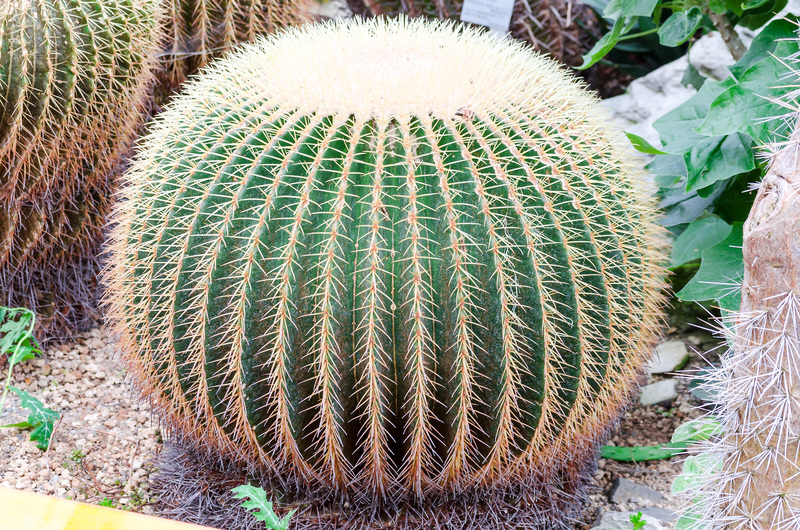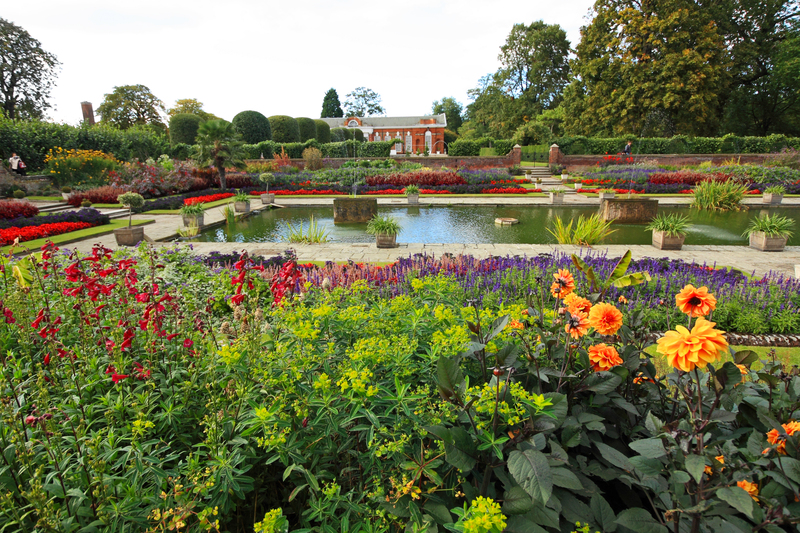3 Game-Changing Tips for Managing Weeds in Any Garden
Posted on 05/09/2025
3 Game-Changing Tips for Managing Weeds in Any Garden
Weeds can feel like the ultimate nemesis for any gardener, from backyard hobbyists to seasoned landscapers. But what if you could seize control and turn the tide in your favor? Let's explore three transformative methods for controlling unwanted plants, ensuring a flourishing landscape that thrives season after season.
Why Effective Weed Control Matters
Weeds are not merely an eyesore; they're aggressive competitors. They:
- Steal nutrients, light, and water from your prized plants.
- Provide habitats for harmful pests and diseases.
- Complicate harvesting and make garden maintenance more challenging.
Left unchecked, weeds can quickly take over any space. Mastering the art of weed management is essential for ensuring the longevity, health, and productivity of your garden. Below, you'll discover the most game-changing tips for weed management--each rooted in research and practical wisdom.

Tip #1: Harness the Power of Mulching
If there's one method every gardener should embrace, it's mulching. This understated technique is arguably the best-kept secret in garden weed prevention.
Why Mulching Stops Weeds in Their Tracks
- Suppresses Weed Germination: By blocking sunlight, mulch halts the growth of many weed seeds before they even emerge.
- Retains Soil Moisture: Healthy plants grow vigorously, outcompeting weeds for resources.
- Improves Soil Health: Organic mulches decompose, enriching the earth for your garden plants.
Choosing the Right Mulch for Optimal Weed Management
The key to effective weed control in gardens is selecting the proper mulch:
- Organic mulches (e.g., straw, shredded leaves, wood chips) are eco-friendly and enrich soil as they break down. They're especially suited for vegetable gardens and perennial beds.
- Inorganic mulches (e.g., landscape fabric, black plastic) form a long-lasting barrier. These are ideal for pathways or areas with persistent weed pressure.
Pro tip: Apply a 2-4 inch layer of mulch, taking care not to smother base stems. Refresh organic layers annually or as needed.
Mulching Mistakes to Avoid
- Don't pile mulch against plant stems or tree trunks: This can cause rot and invite pests.
- Avoid using weed-laden grass clippings: Only use clippings from lawns free of weed seeds and herbicides.
- Too thin a layer won't suppress weeds; too thick can hinder water penetration.
Tip #2: Stay Ahead with Timely, Targeted Weed Removal
The best time to eliminate weeds is before they get a foothold. Waiting until weeds are established makes the job harder and increases their ability to reseed and spread.
Techniques for Swift and Effective Weed Elimination
- Hand Weeding:
- Use a hand fork, hoe, or sharp trowel to uproot weeds while they're still small and before they set seed.
- Weed after rainfall or watering when the ground is soft--roots slip out more easily.
- Pull weeds out with the entire root to prevent regrowth.
- Mechanical Tools:
- Long-handled hoes or stirrup hoes allow for quick action on larger beds without back strain.
- Serrated weeders are excellent for slicing through shallow-rooted weeds.
- Flame and Solarization Techniques:
- Flame weeders use intense heat to destroy weed tissues, effective for driveways and pathways (use caution and follow safety guidelines).
- Solarization involves laying clear plastic over soil in summer heat, "cooking" weed seeds and pathogens out of the topsoil.
Establish a Regular Weeding Routine
Set aside time every week for targeted weed patrol. Addressing a few invaders early is much easier than battling a weed jungle later. For busy gardeners, focus on disturbing areas where weeds are likely to crop up--such as the bases of vegetable rows or flower beds.
Want a time-saving tip? Tackle weeds just after watering or rain--moist soil loosens hold on roots, making removal quicker and more complete.
Don't Let Weeds Set Seed!
Many weeds (like crabgrass, dandelion, and purslane) produce hundreds to thousands of seeds per plant. A single missed dandelion head can lead to a persistent weed problem for years to come. Stay one step ahead by cutting off flower heads if you can't pull every weed completely.
Tip #3: Smart Garden Design and Plant Choices Reduce Weeds
The most sustainable weed management leverages your garden's design and plant selection. A densely planted, well-organized garden naturally stands up to weed invaders.
Strategic Planting: Outcompete and Shade Out Weeds
- Choose groundcovers, trailing annuals, and vigorous perennials to fill bare soil between larger plants.
- Laying out plants closer together (while respecting their mature sizes) reduces open spaces that weeds crave.
- Layer plants vertically: Combine tall flowers or shrubs with low-growing fillers and spreading varieties.
Healthy competition means less sunlight and space available for weeds to germinate and thrive.
Choose the Right Plants for Each Area
- Dense, fast-growing species suppress weeds by rapid leaf-out and shading.
- Living mulch varieties--such as clover or creeping thyme--double as decorative carpets and weed deterrents.
- For difficult spots (banks, slopes, or paths), try spreading junipers, creeping sedums, or vinca minor for robust weed resistance.
Plan Pathways and Edges to Prevent Weed Invasion
- Use landscape fabric and gravel or pavers for heavily trafficked walkways.
- Install physical edging to separate lawns and garden beds, blocking creeping invaders like Bermuda or crabgrass.
- Keep lawn areas healthy and thick--bare patches invite weed seeds to settle.
Bonus Strategies for Long-Term Weed Control
While these three techniques will revolutionize your garden weed control, a few additional practices can amplify your results:
- Encourage Soil Health: Mulch, add compost, and avoid excessive tilling. Healthy soils foster robust plant growth, crowding out weeds.
- Minimize Disturbance: Weeds often capitalize on disturbed soil. Maintain structure with no-till or minimal-dig methods where possible.
- Water Smart: Drip or soaker hoses deliver water directly to your garden plants, depriving weeds of needed moisture between rows.
- Monitor Regularly: Walk your garden every few days. Early detection is the biggest weed-management advantage you can gain.
- Natural Herbicides: As a last resort, try vinegar-based sprays or use boiling water for cracks in pavement--always direct the solution carefully to avoid hurting valued plants.
Common Weeding Myths Debunked
- "Pulling weeds once is enough."
Truth: Many weeds regrow from root fragments. Some seeds can stay dormant for years and germinate during the next disturbance! - "Chemical herbicides are the only solution."
Truth: Physical and cultural controls (mulch, hand-pulling, smart planting) are safer for the ecosystem and often more effective for sustainable, long-term weed management. - "Weeds are only a problem in spring."
Truth: Cool-season weeds sneak in during fall and winter. The best weeders are vigilant throughout the year.
Summary: Create a Weed-Free Garden the Smart Way
Tackling garden weed management starts with proactive measures and a holistic view.
- Mulch for prevention, soil health, and weed suppression.
- Remove weeds early and consistently before seeds can spread.
- Design and plant densely to crowd out and shade weed invaders.
When you combine these game-changing weed control tips with regular observation and a little persistence, you'll transform your garden into a verdant oasis with minimal weed woes. Remember: healthy, happy plants are your best allies in the fight against weeds!

Frequently Asked Questions About Weed Management in Gardens
1. What is the most effective way to prevent weeds?
Consistent mulching and dense planting offer the most reliable, eco-friendly, and low-maintenance method to keep weed seeds from germinating and gaining a foothold.
2. How often should I weed my garden?
A weekly inspection and removal of new weeds is ideal, especially during the growing season. Regular weeding is less time-consuming than infrequent, major clean-ups.
3. Are there safe alternatives to chemical herbicides?
Yes: Hand-pulling, mulching, dense planting, flame weeding, and natural sprays (like vinegar or boiling water for hardscapes) are all effective and eco-safe.
Conclusion: Take Charge of Your Garden's Future
Weeds don't have to control your garden story. With these innovative weed management strategies--mulching, timely removal, and smart design--you'll enjoy stronger plants, higher food production, and a more beautiful landscape every season. Start implementing these steps today, and soon you'll have a thriving, low-maintenance garden you can truly be proud of.

